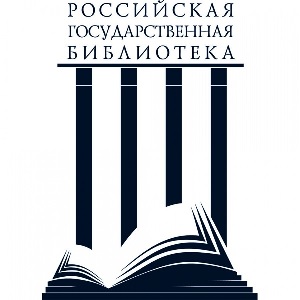ИМИТАЦИОННОЕ МОДЕЛИРОВАНИЕ КОГНИТИВНЫМИ ГРАФАМИ НА ПРИМЕРЕ ИНФЛЯЦИОННЫХ ВОЗМУЩЕНИЙ
Аннотация
Целью данного исследования является оценка природы инфляционных скачков в отдельных индустриях. Поскольку инфляция является одним из ключевых макроэкономических параметров, напрямую влияющих как на деловой климат, так и на социальную среду в стране, важно, чтобы была максимальная прозрачность динамики данного экономического показателя. Использование когнитивного графового анализа позволяет определить, как комплексные межфакторные воздействия в системе влияют на динамику развития системы в целом.
Литература
Abramova N.A., Avdeeva Z.K. Cognitive analysis and management of application: problems of methodology, theory and practice. Problems of management. 2008. N 3. Р. 85-87. (in Russian).
Avdeeva Z.K., Makarenko L.P., Maximov V.P. Cognitive technologies of decision-making support in strategic management of situations. Information Technologies. 2006. N 2. Р. 15-25. (in Russian).
Bushin P.Y., Zakharova V.N. Mathematical methods and models in economics: textbook. Khabarovsk: KSUEL. 2006. 140 p. (in Russian).
Goncharov D.K. Development of hidden key competencies of the enterprise. Creative Economy. 2009. N 5. Р. 92-96. (in Russian).
Gorelko G.P., Korovin D.I. Mathematical modeling of the dynamics of changes in the qualitative indicators of the socio-economic system using weighted digraphs. Ivecofin. 2013. N4 (18). P. 84-91 (in Russian).
Gorelko G.P., Korovin D.I. Modeling the interactions of factors of the socio-economic system of Russia by the method of graph theory. Ivecofin. 2013. N2(16). Р. 100-106. (in Russian).
Gorelko G.P., Korovin D.I. The use of balanced digraphs to describe the dynamics of economic processes in socio-economic systems: monograph. Ivanovo: ISPU. 2014. 176 р. (in Russian).
Ilchenko A.N. Economic and mathematical methods. Moscow: Finance and statistics. 2006. 287 p. (in Russian).
Kamaev V.A. Cognitive modeling of socio-economic systems. Volgograd: VolgSTU. 2012.135 p. (in Russian).
Korovin D.I. On the use of cognitive graphs to analyze the qualitative characteristics of socio-economic processes: corruption in the university. Ivecofin. 2020. N 2 (44). Р. 67-72. (in Russian).
Kuznetsov O.P. Methods of formalization, analysis and decision-making in poorly structured situations based on fuzzy cognitive maps. Moscow: MIEP. 2007. Vol. 3. Р. 27-30. (in Russian).
Luchko O.N., Marenko V.A., Khveckovich E.B. Information and analytical systems: monograph. Omsk: OmНA. 2010. 166 p. (in Russian).
Luchko O.N., Marenko V.A. Cognitive modeling as a decision support tool: monograph. Novosibirsk: Siberian Branch of the Russian Academy of Sciences. 2014. 119 р. (in Russian).
Mazny G.L., Kursova N.V. Sign graphs and digraphs and their application in modeling and analyzing complex problems in ecology, psychology, economics and politics. Geoinformatics. 1997. N 3. Р. 8-17. (in Russian).
Marenko V.A., Luchko O.N., Stripping L.O. Information and analytical work in socio-economic systems. Novosibirsk. Siberian Branch of the Russian Academy of Sciences. 2010. 116 p. (in Russian).
Pavlov A.N., Sokolov B.V. Decision-making in conditions of fuzzy information: textbook. St. Petersburg: SUAI, 2006. 72 p. (in Russian).
Panurin V.N., Savchenko N.P. Targeted approach to the analysis of the economic interests of the participants in the compulsory medical insurance agreement. Bulletin of PSUE. Economics and Management. 2013. N 2. Р. 79-87. (in Rus-sian).
Pegat A. Fuzzy modeling and control. Moscow: BINOM. Knowledge Laboratory. 2011. 798 p. (in Russian).
Roberts F.S. Discrete mathematical models with application to social, biological and environmental problems. Moscow: Nauka. 1986. 496 р. (in Russian).
Yablonskiy S.V. Introduction to discrete mathematics. Moscow: Nauka. 1986. 384 p. (in Russian).
Axelrod R. Structure of Decision: The Cognitive Maps of Political Elites. N.Y.: Princeton University Press. 1976.
Astrakhantseva I., Kutuzova A., Astrakhantsev R. Artificial Neural Networks in Inflation Forecasting at the Meso-Level. SHS Web of Conferences: III International on New Industrialization and Digitalization (NID 2020). Ekaterinburg: EDP Sciences. 2021. P. 02005. DOI: 10.1051/ shsconf/20219302005.












